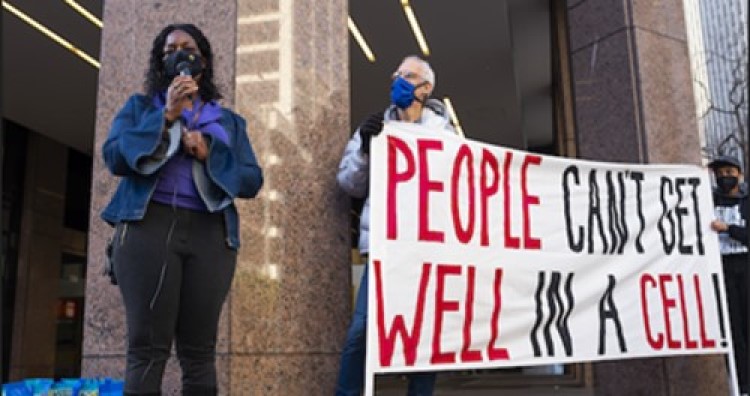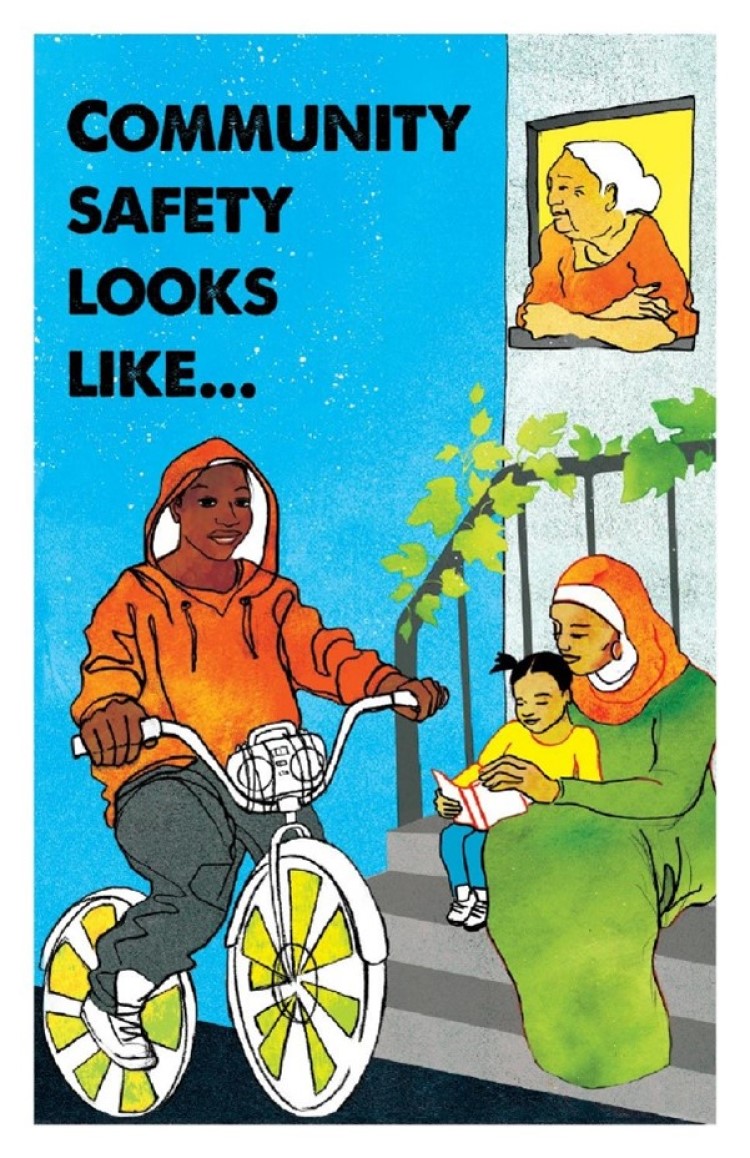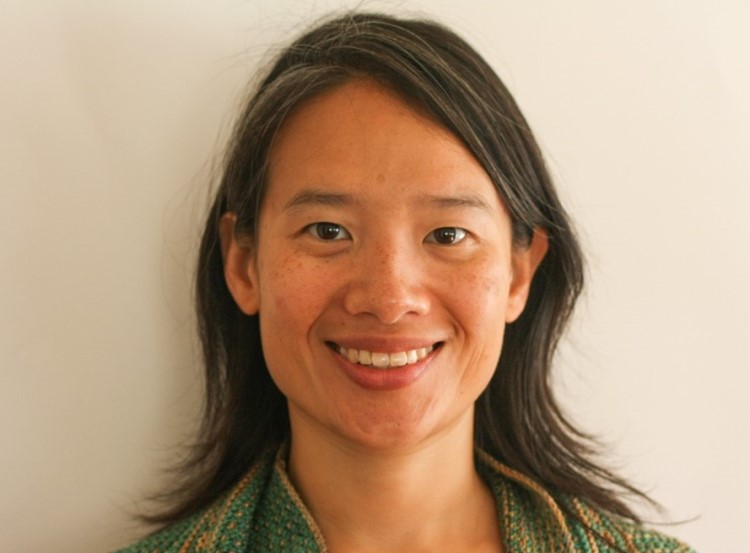
Welcome to our new quarterly newsletter! We look forward to connecting with you by email at CAHealingJustice@afsc.org or phone 510-282-8983.
Newsflash
John Lindsay-Poland will testify about Santa Rita Jail this Wednesday, March 2 at 1:30 pm PT at the California Senate Budget Subcommittee on Public Safety, The video link for the hearing will be posted here. People can call in to listen: Subcommittee No. 5 on Public Safety, Corrections, Judiciary, Labor and Transportation at 1:30 p.m. - Room 4203, Participant Phone Number: 844-291-6364 | Access Code: 5863917
In this issue:
Working to close prisons in California
Appeal considered following ruling on jail expansion
Shining a light on police use of militarized equipment
Building community alternatives to police response
Welcome to Ristad Fellow Jennifer Tu
Working to close prisons in California
AFSC continues our work to advance the Close California Prisons Campaign with the goal of closing eight of the state’s 34 prisons in the next five years. Deuel Vocational Institute (DVI), located in Tracy, CA, was phased into a “warm shut down” in September 2021. We are now trying to work with people in that community to ensure the prison is fully shut down and will not be repurposed for CDCR in another way.
The campaign has launched another target for closure: Kern Valley State Prison (KVSP). We have partnered with Color of Change to highlight the horrible conditions of confinement within KVSP. Take 60 seconds and sign this petition to the governor to close prisons in California! Currently we have 5,000 signatures!
The next state prison slated for closure is California Correctional Center (CCC) in Susanville, Lassen County. We are actively engaging with local communities to discuss how they can rely less on prisons for their town’s economic stability. In the meantime, a lawsuit that Susanville has filed against the governor and California Department of Corrections and Rehabilitation (CDCR) has halted the closure. (Are you in Lassen County and want to help us close CCC? Email FKhan@AFSC.org.).

Kimberly Graves is the mother of a man with serious mental illness who was incarcerated in Santa Rita Jail. Nominated to serve on the “Care First, Jails Last” task force, she’s shown above speaking at a protest in San Francisco.
Appeal considered following ruling on jail expansion
AFSC and coalition partners are consulting with incarcerated people about whether to appeal a recent judge’s ruling to approve a multi-million dollar settlement and consent decree that will enormously expand staffing at Santa Rita Jail. The expansion commits the Alameda County to more than 300 new jail deputies and other sheriff staff, costing the County more than $84 million annually – even as the county committed to a “Care First, Jails Last” policy. Thirty-nine incarcerated people shared their objections at a recent hearing.
“The Babu settlement makes winners out of the Sheriff at the expense of those of us in the facility,” said Tiara Arnold, who says that she has experienced retaliation from the jail for helping fellow incarcerated women prepare for the hearing.
Tommy Navarrette, who was recently released from Santa Rita Jail, said “I am extremely disappointed and disheartened with this decision.” He adds that the settlement represents collusion with the County, which has approved an $84 million annual budget increase as a result of the settlement but no audit of how the Sheriff uses those funds.
Together with Legal Services for Prisoners with Children, National Lawyers Guild Bay Area, and Critical Resistance, AFSC filed a formal objection to the jail expansion in December. We continue to support the Care First, Jails Last policy, as the County convenes a Care First task force in the coming weeks. Stay tuned.

Shining a light on police use of militarized equipment
California has a unique opportunity for communities across the state to seek transparency and demilitarize their local police and sheriff agencies.
AB 481, a California state law signed last fall, will require all police and sheriff departments to disclose what militarized equipment they have and submit use policies to city councils and county supervisors by May 1, 2022 for a range of militarized gear, acquired from any source. Elected officials must receive community input to decide on the use of this military equipment in the community.
AB 481 offers many new opportunities for unveiling – and restricting -- the militarized gear that police use and ways to reduce or stop its harmful uses. There is no other law like AB 481, which will shine an unprecedented light on policing in cities and counties across California.
AFSC California Healing Justice will be supporting communities across California to advocate for full transparency and push back on the militarized policing that has targeted Black and Brown communities and protests. Based on hundreds of public records requests, we are producing an in-depth report, advocacy toolkit, database, and visualizations of records.
We also plan to provide ongoing support to California communities seeking transparency and demilitarization of police, including with an online schedule of policies proposed by law enforcement for military equipment and public meetings that will consider the policies.
We filed Public Records Act requests to police and sheriff departments in California since July 2021 for purchase and deployment records and use policies for assault rifles, “less lethal” launchers and munitions, armored vehicles and other gear.
A volunteer team has entered and verified the data from these records. Our report and interactive data visualizations will be released on April 5. To get on a list to respond to military equipment proposals in your community, contact Jennifer Tu, jtu@afsc.org with your name, city, and county.

Building community alternatives to police response
Have you ever found yourself wanting to call for help, you don't want an armed
- develop an understanding of current community-based responses to emergencies in communities across the country
- do an assessment of the assets and needs for emergency response in our own community
- receive concrete training in de-escalation and mental health crisis response, and
- develop a plan to take concrete action toward building community alternatives to police response.
IMPORTANT: Please sign up for this workshop series with a partner from your community (i.e., your school, neighborhood, workplace, congregation, family, etc.). This will help you to bring the knowledge gained in this workshop into concrete action!

Welcome to Ristad Fellow Jennifer Tu
Jennifer Tu (she/her) began her 10-month Ristad Fellowship with the California Healing Justice Program in November.
Jennifer’s work includes supporting the program’s police demilitarization and prison closure work across the state of California. Jennifer says she first became aware of AFSC several years ago through its legislative recommendations. Over the past 18 months of her work on local policy matters, she ran into John Lindsay-Poland and said she is excited to work with him and other AFSC colleagues more closely.
The Ristad Fellowship was named after generous donor Rev. Robert “Nick” Ristad, who passed away in September.
Jennifer is a graduate of MIT and has many years of experience in software engineering and leadership. We’re very pleased to welcome her to AFSC.